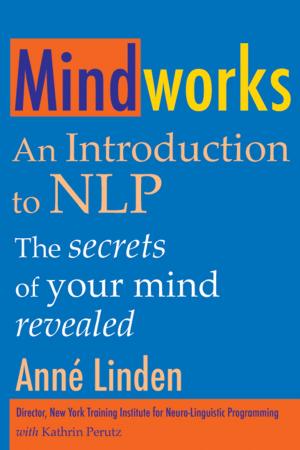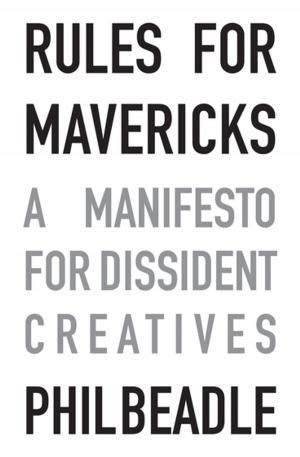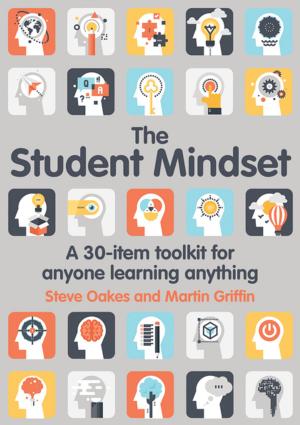Uncivilised Genes
Human evolution and the urban paradox
Nonfiction, Health & Well Being, Medical, Reference, Public Health, Social & Cultural Studies, Social Science, Anthropology, Psychology| Author: | Gustav Milne | ISBN: | 9781781352830 |
| Publisher: | Crown House Publishing | Publication: | August 31, 2017 |
| Imprint: | Independent Thinking Press | Language: | English |
| Author: | Gustav Milne |
| ISBN: | 9781781352830 |
| Publisher: | Crown House Publishing |
| Publication: | August 31, 2017 |
| Imprint: | Independent Thinking Press |
| Language: | English |
In Uncivilised Genes: Human Evolution and the Urban Paradox, Gustav Milne explores how we can reconfigure our lifestyles and urban environments, based on an understanding of our prehistoric past, in order to bring about a richer future for mankind.
We evolved as hunter-gatherers over a period of more than three million years: living off the land within small tribal societies in a symbiotic working relationship with nature. Understanding this legacy and how our evolution has determined our social, psychological, nutritional and physiological needs means we can adopt what Milne has termed evolutionary-concordant behaviours: behaviours designed to reconcile the fundamental mismatch between our current urban lifestyles and our ancient biology.
Our ancestral diets and lifestyles could hold the secret not only to enhancing our health and happiness but also to combating the prevalence of western lifestyle diseases such as obesity, type 2 diabetes and various types of cancer to name but a few. Milne expertly evaluates these challenges – along with many other issues pertinent to our urban wellbeing – and proposes solutions within our reach, including adaptations to our dietary regimes, lifestyle-embedded activities and school and university curriculums, and a re-engineering of our built environment to better suit our needs.
Drawing on what archaeological evidence reveals about Palaeolithic and Mesolithic diets, as well as on anthropological studies of contemporary hunter-gatherer societies, Uncivilised Genes offers timely insights to enhance our collective and individual health and prosperity. It also shines a spotlight on the evolutionary determinants of social behaviour, and looks at how we can bridge the gap between the world we are creating and the un-urbanised, uncivilised world to which we are genetically and psychologically better adapted.
This book is not a rejection of modernity. Neither is it a call to reject towns and seek solace in a rural idyll, nor another celebrity-endorsed fad diet or exercise programme. Rather, it is a comprehensive chronicle of the myriad factors that continue to contribute to our societal and personal wellbeing, and a broad-ranging blueprint for a richer future more in tune with our basic physiology, psychology, metabolism and mindset.
Essential reading for anyone interested in living a healthier, more evolutionary-concordant life.
Contents include:
- In the Beginning;
- Genesis;
- A View of the Garden;
- A Hunger Game;
- Food for Thought;
- Body of Evidence;
- A Life Less Sedentary;
- Lost Tribes;
- Hunter-Gatherer vs. Football-Shopper;
- Music and Words;
- Green and Pleasant;
- Central Park;
- Old Town;
- Urban Regeneration;
- Revelations.
In Uncivilised Genes: Human Evolution and the Urban Paradox, Gustav Milne explores how we can reconfigure our lifestyles and urban environments, based on an understanding of our prehistoric past, in order to bring about a richer future for mankind.
We evolved as hunter-gatherers over a period of more than three million years: living off the land within small tribal societies in a symbiotic working relationship with nature. Understanding this legacy and how our evolution has determined our social, psychological, nutritional and physiological needs means we can adopt what Milne has termed evolutionary-concordant behaviours: behaviours designed to reconcile the fundamental mismatch between our current urban lifestyles and our ancient biology.
Our ancestral diets and lifestyles could hold the secret not only to enhancing our health and happiness but also to combating the prevalence of western lifestyle diseases such as obesity, type 2 diabetes and various types of cancer to name but a few. Milne expertly evaluates these challenges – along with many other issues pertinent to our urban wellbeing – and proposes solutions within our reach, including adaptations to our dietary regimes, lifestyle-embedded activities and school and university curriculums, and a re-engineering of our built environment to better suit our needs.
Drawing on what archaeological evidence reveals about Palaeolithic and Mesolithic diets, as well as on anthropological studies of contemporary hunter-gatherer societies, Uncivilised Genes offers timely insights to enhance our collective and individual health and prosperity. It also shines a spotlight on the evolutionary determinants of social behaviour, and looks at how we can bridge the gap between the world we are creating and the un-urbanised, uncivilised world to which we are genetically and psychologically better adapted.
This book is not a rejection of modernity. Neither is it a call to reject towns and seek solace in a rural idyll, nor another celebrity-endorsed fad diet or exercise programme. Rather, it is a comprehensive chronicle of the myriad factors that continue to contribute to our societal and personal wellbeing, and a broad-ranging blueprint for a richer future more in tune with our basic physiology, psychology, metabolism and mindset.
Essential reading for anyone interested in living a healthier, more evolutionary-concordant life.
Contents include:
- In the Beginning;
- Genesis;
- A View of the Garden;
- A Hunger Game;
- Food for Thought;
- Body of Evidence;
- A Life Less Sedentary;
- Lost Tribes;
- Hunter-Gatherer vs. Football-Shopper;
- Music and Words;
- Green and Pleasant;
- Central Park;
- Old Town;
- Urban Regeneration;
- Revelations.















